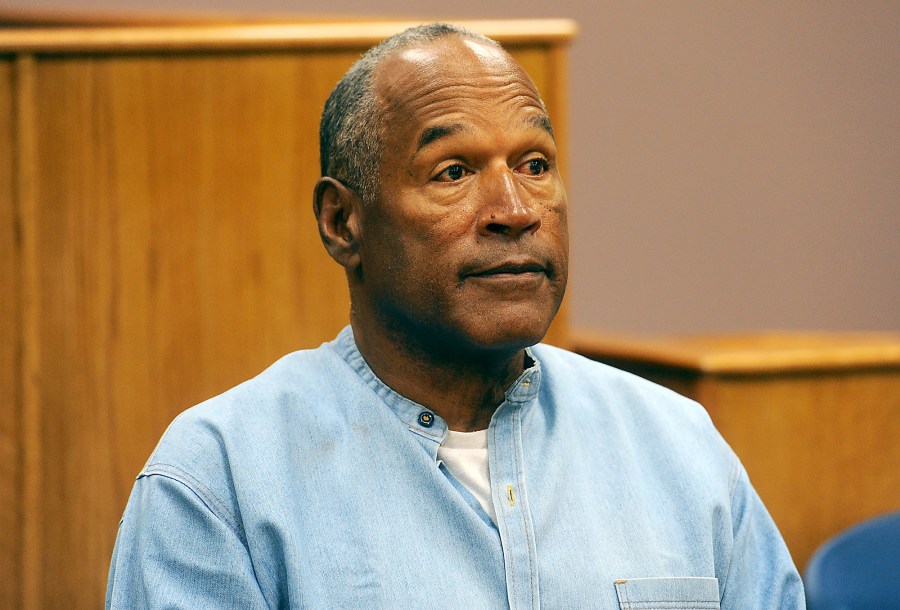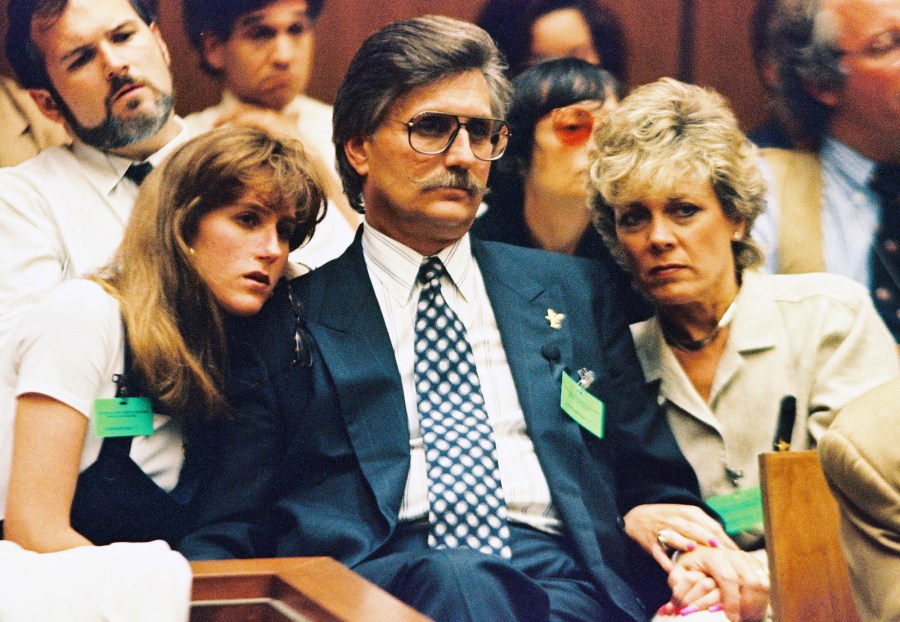
It’s been reported that the O.J. Simpson owed the Goldman family nearly $144 million at the time of his death. But the late football star’s lawyer claims that the debt is actually closer to $200 million — a sum the notorious NFL star’s estate won’t be able to pay.
“California judgments are very simple. They double every 10 years,” the late Simpson’s attorney, Malcolm LaVergne, told Us Weekly exclusively on Tuesday, April 16. “Honestly, it’s closer to $200 million. I don’t know why they’re undervaluing it.”
Simpson initially rose to fame as an NFL star but his name has since become rooted in infamy after he was arrested for the murder of ex-wife Nicole Brown Simpson and her friend Ron Goldman who were fatally stabbed. While Simpson was acquitted of the murder charges in 1995, he was found guilty of wrongful death and battery in a civil suit two years later.
Simpson was ordered to pay the Goldman family more than $33 million, which their attorney claimed has since amounted to over $100 million with interest.
Key Moments in O.J. Simpson’s Trial: From ‘The Glove’ to Denise Brown
While LaVergne — who is also the executor of Simpson’s estate — told Us that he estimates the current sum to be higher, he also claimed that the Goldman family is unlikely to receive the full amount.
“Mr. Simpson’s estate is not worth $200 million,” LaVergne stated, claiming that the late athlete “lived like a rich trust fund baby” with “nice monthly streams of income that can’t be touched by creditors.”
However, now that he’s passed, the streams of income have ended.
Simpson’s family announced on Thursday, April 11, that he had died following a battle with prostate cancer.
“On April 10th, our father, Orenthal James Simpson, succumbed to his battle with cancer. He was surrounded by his children and grandchildren,” the social media statement read. “During this time of transition, his family asks that you please respect their wishes for privacy and grace.”

In the wake of Simpson’s death, Ron’s father, Fred Goldman, told Us that he has “been pursuing justice for many, many years” after their son’s murder. “For us, the continuation of that has nothing to do with whether [O.J.] is deceased or not. We will continue to pursue that judgment and justice for Ron. Nothing has changed,” he added.
LaVergne, meanwhile, clarified statements he previously made in which he said he hopes the Goldman family gets “nothing” following Simpson’s death.
“When I originally said that it was my hope that they get zero, nothing and I’m going to do everything I can to make sure they get nothing,” he told Us, adding his comments were made before he knew he was executor of Simpson’s estate.
“I’ve been a Simpson’s attorney for 15 years. I’m his advocate. And now immediately I’ve had to switch to the executor role, which is two different roles. So yeah, I walked those statements back,” LaVergne added. “It is in everyone’s interest now – all parties and claimant’s interest – to make sure that O.J.’s estate is as healthy and large as possible because if O.J.’s estate is big, then Fred Goldman’s piece of the pie gets bigger.”
Celebrity Deaths of 2024: Stars We Lost This Year
He continued, “But keep in mind as big as those judgments are, and with the IRS and with funeral expenses, and frankly with my fees and expenses, it’s just unrealistic. It’s not practical to think that that judgment’s going to be paid in full.”
LaVergne explained that the Goldmans may have to take a settlement.
“Fred Goldman is not alone. His ex-wife, Ron [Goldman’s] mother, Sharon Rufo, is in the picture,” he said. “The Brown families may be in the picture, the IRS is in the picture, funeral expenses are in the picture, I’m in the picture. And any other people who have debts are in the picture. You’re just going to have to take a smaller portion of what you are owed based on what everyone else is owed.
LaVergne added, “So how much are each one of you willing to take? What little piece of the pie are you willing to take of this thing so that this case can be resolved? And if it can’t be resolved with the creditors, the court’s [going to] resolve it.”





